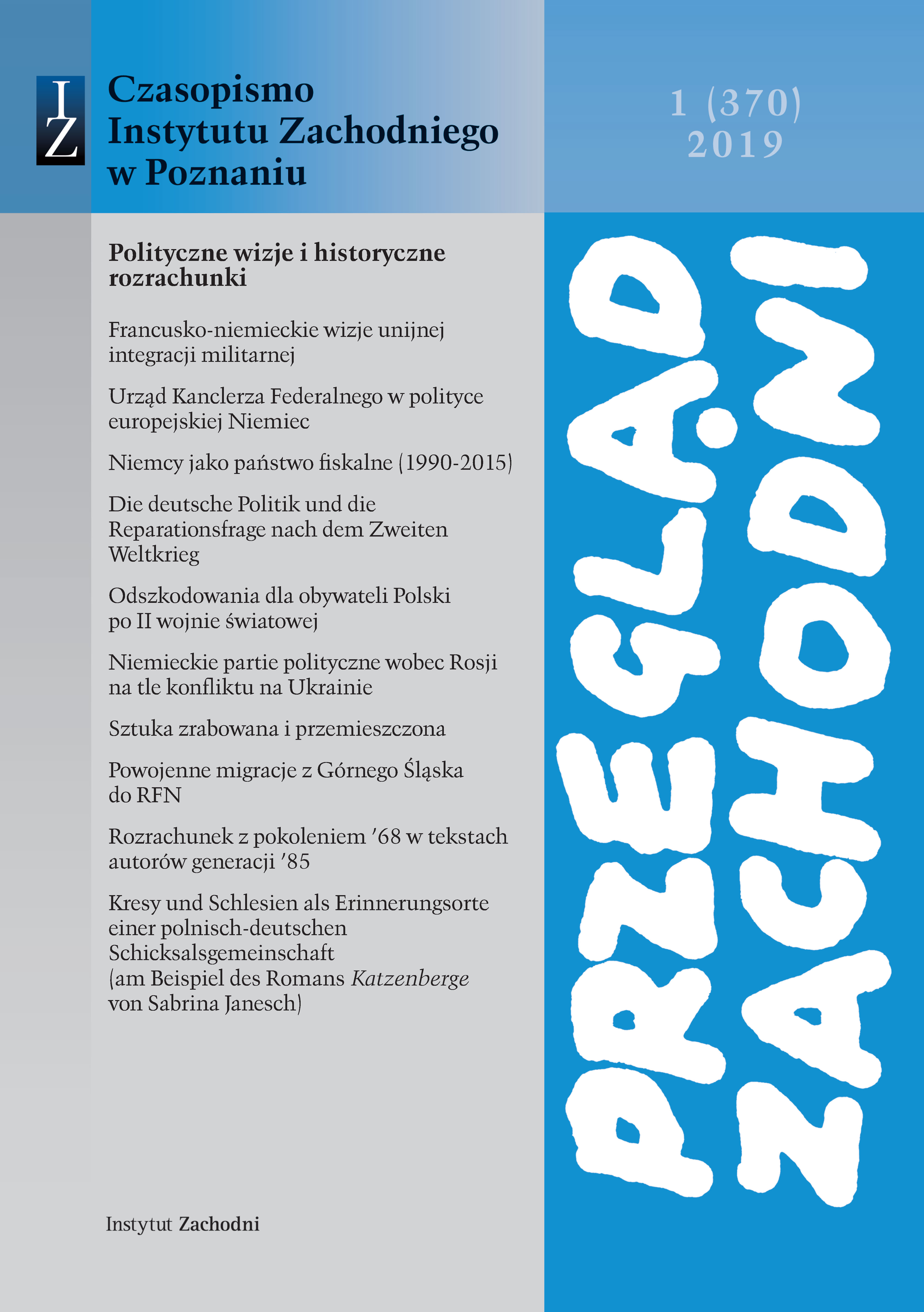Die deutsche Politik und die Reparationsfrage nach dem Zweiten Weltkrieg.
Germany's policy regarding the reparation issues after World War II
A critical review with the particular focus on tensions with Poland
Author(s): Karl Heinz RothSubject(s): Post-War period (1950 - 1989)
Published by: Instytut Zachodni im. Zygmunta Wojciechowskiego
Keywords: reparations; World War II; European countries; Germany
Summary/Abstract: The aim of the article is to present the problem of reparations. The issue of reparations remains a controversial and explosive chapter in the history of Europe after World War II. Whereas the larger victorious powers received some compensation in the years immediately after the war, the smaller European countries, as well as numerous victim groups, largely came away empty-handed. One of these countries is Poland, which to this day is calling for reparations to compensate for the plundering of its economy and for the victims of the massacres under the Nazi occupation. The article presents as a main problem the question, why to this day, the German elites have refused to pay reparations which take into account all victim groups and all the countries once occupied by Germany. In this article, the author explores the context, the strategic options and the tactics behind the German elites’ approach towards compensation – an approach which culminated in the issue of reparations being removed from the de facto peace treaty of 1990 (the ‘Two Plus Four Treaty’). The paper is based on various research methods, especially on survey of diplomatic documents and some studies published in Poland and Germany on the subject.
Journal: Przegląd Zachodni
- Issue Year: 370/2019
- Issue No: 01
- Page Range: 59-82
- Page Count: 24
- Language: German

